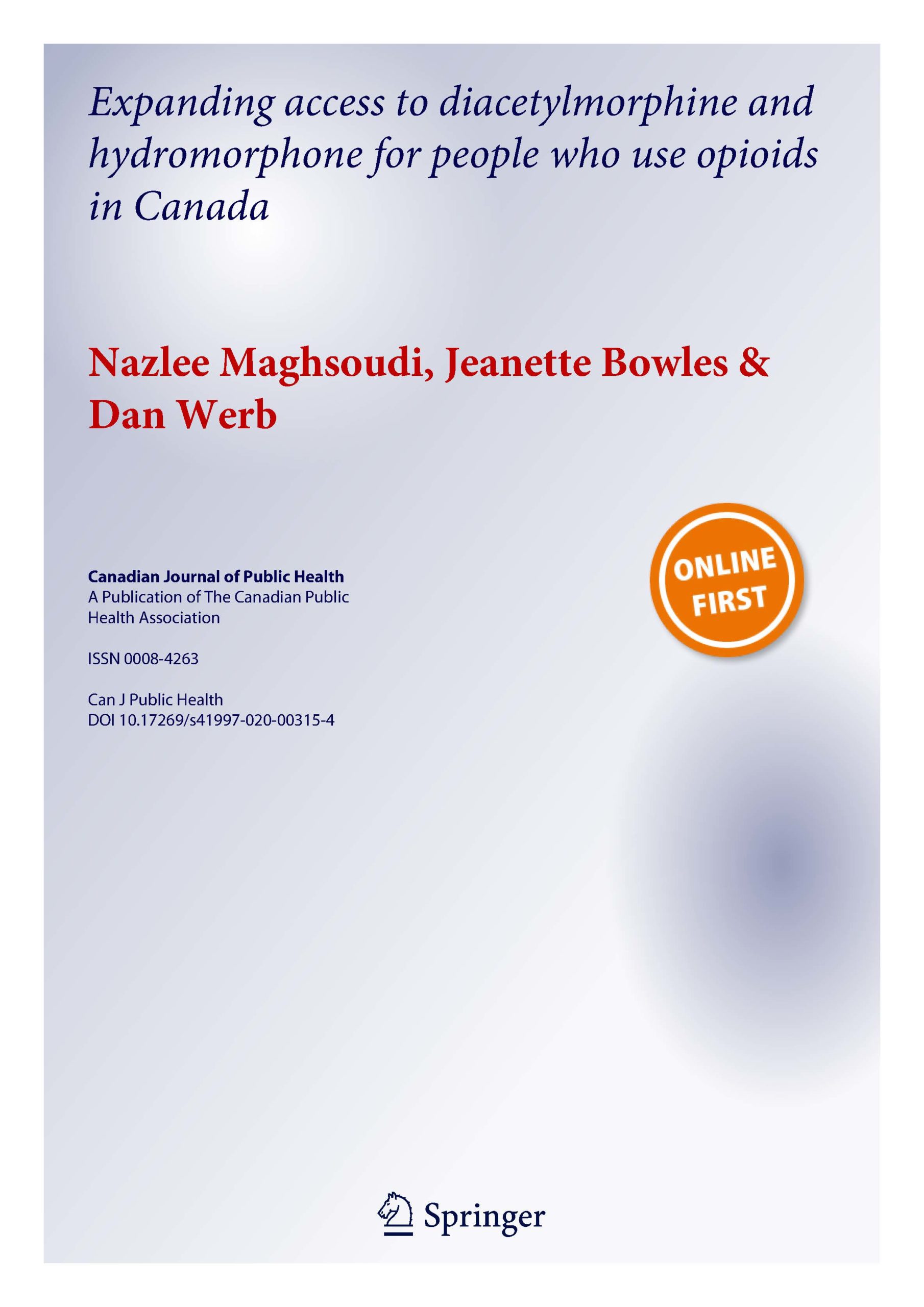Posted: September 14 2016
Author: Nazlee Maghsoudi
The ICSDP Strongly Supports Health Canada’s Decision on Access to Heroin-Assisted Treatment
The International Centre for Science in Drug Policy (ICSDP) strongly supports Health Canada’s decision to once again allow doctors to prescribe pharmaceutical-grade heroin for the treatment of individuals with severe opioid addiction.
Last week’s legislative change reversed a ban imposed by the former Conservative government prohibiting Health Canada from approving pharmaceutical-grade heroin through the Special Access Programme (SAP), a program that allows doctors to request access to drugs that would otherwise not be available for sale for use by patients that have serious or life-threatening conditions.

“It is encouraging to see Health Minister Jane Philpott take heed of the international evidence indicating that heroin-assisted treatment (HAT) is effective in enhancing the health and wellbeing of people who use drugs. The adoption and scaling up of harm reduction programs like HAT is essential to creating an evidence-based approach to drug dependence in Canada, and this decision is an important step that will undoubtedly improve the health and wellbeing of many Canadians,” said Dr. Dan Werb, Director of the ICSDP.
Health Canada placed the decision to allow access to pharmaceutical-grade heroin through the SAP in the context of the unprecedented opioid overdose crisis observed across Canada in recent years. According to the Health Canada statement, “Canada is currently facing an opioid overdose crisis, and we need to assist our healthcare providers in treating their patients, including those who are suffering from chronic relapsing opioid dependency.”
This legislative change follows the release of a call to action by the ICSDP, the Canadian Drug Policy Coalition, the Canadian HIV/AIDS Legal Network, and the Canadian Association of People Who Use Drugs – endorsed by over 70 Canadian civil society organizations – which urged Canadian policymakers to immediately implement a five-point action to reduce opioid overdose fatalities.
One of the five recommendations called for immediate regulatory action to scale up access to pharmaceutical-grade heroin as a treatment for opioid dependence, a point of action which is now closer to becoming a reality.
According to Dr. Werb, “Health Canada’s decision to allow access to HAT through the SAP is the most recent in a series of important steps to slow the tide on the rising number of preventable overdose deaths. Yet, a comprehensive response to overdose will require further immediate action by the federal government, such as the repeal of Bill C-2. As such, much work still needs to be done to prevent opioid overdose fatalities. The ICSDP looks forward to continued engagement with Health Canada in the pursuit of evidence-based drug policies.”
Top photo by Todd Huffman.

